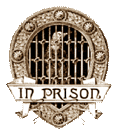Does D.C. Sex Scandal Go All the Way to the Top?
There are reasons that Hastert may not want any information surrounding the Foley sex scandal to come to light.
Numerous websites display the sordid scandal of the late '80s involving male prostitution rings, including children, and sex parties attended by not only wealthy businessmen but officials at the highest level of US government. These sites have shown the Washington Times articles by Paul M. Rodriguez and George Archibald.
This scandal came amidst, and perhaps because of, the Franklin Credit Union scandal, in which Lawrence "Larry" King was said to be running a large, well-connected and very prosperous child prostitution/slavery ring, with many of the children having come from Boys Town, Nebraska.
A documentary was produced entitled "Conspiracy of Silence" produced by British Yorkshire Television and was scheduled to air nationwide in the U.S. on the Discovery Channel on May 3, 1994. It was yanked at the last minute, despite already appearing in the listings of TV Guide. It is the most chilling thing I have seen so far.
I encourage every American to view this hour long documentary (be aware it is the rough edit so there are several spots where it goes black, but be patient).
Here is a great interview with former Nebraska state Senator John De Camp about the scandal, the evidence and the implications (at the time).
And what about Jeff Gannon?
 ?
?
A recent post on his blog interested me - and I had to ask the question asked by others: by being a person in the "media" (he calls himself "new media") in the White House Press Corps and therefore getting some attention himself, is he trying to get people to investigate?
It seems that there are too many coincidences, too many threads that run the same direction that one cannot help but wonder if Foley was just playing outside of their game and as much as anyone tried to contain him, he got sloppy and then got caught when actual records of his communications were published?
Was it then something that hit too close to home for those in power, so they tried to hush it up/deny/blame others?
Is this why there is so much vehement projection onto the Democrats (who, I would surmise are just as guilty as they are in the circle of sex partiers) besides the obvious public/political ramifications?
Is this (1, 2, 3)why the FBI wouldn't investigate or forward it to the DOJ to press charges against anyone in the Franklin case? And it looks like that may repeat this time, too. There are articles where authors and apparently the FBI wonder if Foley actually broke any laws and they haven't yet siezed his computers?
Tom Flocco asks made this very keen point:
Then Tom asks - is this the tip of the iceberg? It would seem so.
But I think the main question, with all the above considered is:
October 2, 2006 -- Hastert's other major conflict of interest. Dennis Hastert's business relationship with the late 1970s/early 1980s Koreagate scandal figure Tongsun Park, who was a co-owner and 1966 co-founder of the members-only Historic George Town Club -- in the early 1980s a center of a prostitution scandal involving male and female congressional pages -- may have influenced his decision to avoid digging up dirt on the new congressional page sex scandal involving Mark Foley and other key House GOP leaders. Koreagate involved the channeling of money by the Korean Central Intelligence Agency to Park to influence members of Congress. Unification Church leader, Rev. Sun Myung Moon, the owner of the Washington Times and close friend of the Bush family, was also involved in the scandal. The scandal, according to Peter Dale Scott, had links to Washington, DC mafia boss, Joe "The Possum" Nesline. The club was also linked to the CIA proprietary firm Consultants International.
Numerous websites display the sordid scandal of the late '80s involving male prostitution rings, including children, and sex parties attended by not only wealthy businessmen but officials at the highest level of US government. These sites have shown the Washington Times articles by Paul M. Rodriguez and George Archibald.
This scandal came amidst, and perhaps because of, the Franklin Credit Union scandal, in which Lawrence "Larry" King was said to be running a large, well-connected and very prosperous child prostitution/slavery ring, with many of the children having come from Boys Town, Nebraska.
A documentary was produced entitled "Conspiracy of Silence" produced by British Yorkshire Television and was scheduled to air nationwide in the U.S. on the Discovery Channel on May 3, 1994. It was yanked at the last minute, despite already appearing in the listings of TV Guide. It is the most chilling thing I have seen so far.
I encourage every American to view this hour long documentary (be aware it is the rough edit so there are several spots where it goes black, but be patient).
Here is a great interview with former Nebraska state Senator John De Camp about the scandal, the evidence and the implications (at the time).
And what about Jeff Gannon?
 ?
?A recent post on his blog interested me - and I had to ask the question asked by others: by being a person in the "media" (he calls himself "new media") in the White House Press Corps and therefore getting some attention himself, is he trying to get people to investigate?
It seems that there are too many coincidences, too many threads that run the same direction that one cannot help but wonder if Foley was just playing outside of their game and as much as anyone tried to contain him, he got sloppy and then got caught when actual records of his communications were published?
Was it then something that hit too close to home for those in power, so they tried to hush it up/deny/blame others?
Is this why there is so much vehement projection onto the Democrats (who, I would surmise are just as guilty as they are in the circle of sex partiers) besides the obvious public/political ramifications?
Is this (1, 2, 3)why the FBI wouldn't investigate or forward it to the DOJ to press charges against anyone in the Franklin case? And it looks like that may repeat this time, too. There are articles where authors and apparently the FBI wonder if Foley actually broke any laws and they haven't yet siezed his computers?
"It's a violation of Florida law for an adult to knowingly contact a child and knowingly transmit sexual information" over the Internet.
- Mitchell Nixon, head of the Internet Crimes Against Children Task Force of North Florida.
Tom Flocco asks made this very keen point:
That Fordham would be committing career suicide by literally throwing the Speaker of House under the bus if his statements were not true lends substantial credence to seemingly strong evidence surrounding the Foley email cover-up by congressional Republicans.
Then Tom asks - is this the tip of the iceberg? It would seem so.
But I think the main question, with all the above considered is:
Will there be real legal actions, or any real action taken at all?
Labels: Coverup, D.C. Scandals, Hypocracy, Mark Foley, Sex Offenses















